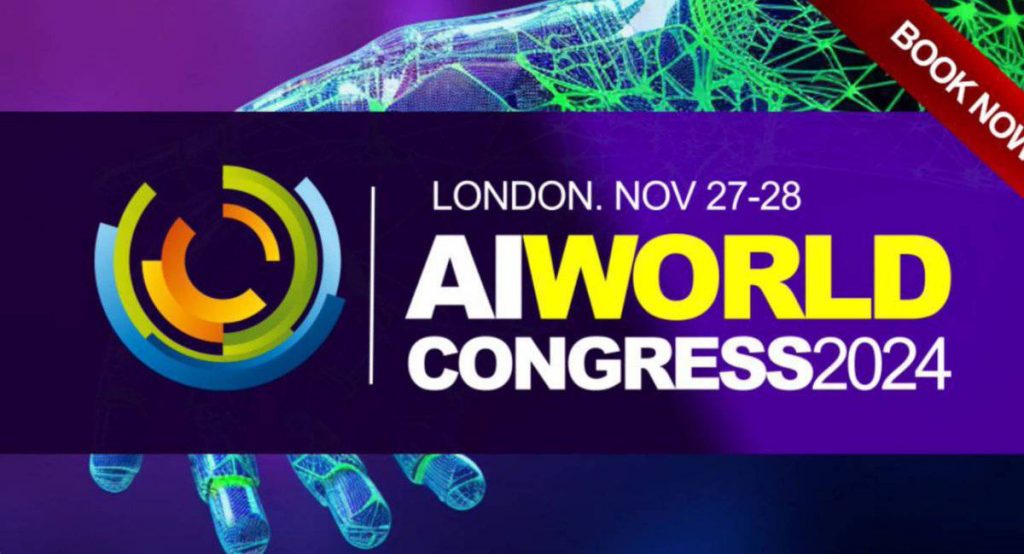

The Metaverse, a digital realm where users interact with virtual environments and each other in real-time, is poised for exponential growth in the coming years. With the integration of Artificial Intelligence (AI), the Metaverse is becoming increasingly immersive, personalized, and interactive. In this article, we delve into the impact of AI in the Metaverse market size in 2024, exploring emerging trends and providing forecasts for the year 2030.

1. Introduction to the Metaverse and AI Integration The concept of the Metaverse has gained significant traction in recent years, fueled by advancements in virtual reality (VR), augmented reality (AR), and AI technologies. According to a report by PwC, the Metaverse market is projected to reach USD 1.6 trillion by 2030, driven by the proliferation of AI-driven virtual experiences and services. AI integration in the Metaverse enhances user interactions, content creation, and personalization, paving the way for a more immersive and engaging digital environment.
2. AI-Powered Virtual Assistants and Avatars AI-powered virtual assistants and avatars are essential components of the Metaverse, providing users with personalized guidance, support, and companionship. Companies like Meta, formerly Facebook, are investing heavily in AI technologies to develop lifelike virtual beings that can interact with users in natural language. These AI-driven entities use machine learning algorithms to understand user preferences, anticipate their needs, and deliver relevant information and experiences within the Metaverse.
3. Personalized Content Creation and Recommendations AI algorithms play a critical role in personalized content creation and recommendations within the Metaverse. Platforms such as Roblox leverage AI to generate customized virtual environments, games, and experiences tailored to individual preferences and interests. Additionally, AI-driven recommendation engines analyze user behavior and interaction patterns to suggest relevant content, events, and social connections, enhancing engagement and retention in the Metaverse.

4. AI-Driven Social Interactions and Communities AI technologies facilitate social interactions and community-building within the Metaverse, enabling users to connect with like-minded individuals and form meaningful relationships. Companies like Rec Room use AI-powered matchmaking algorithms to pair users with compatible peers for collaborative activities and games. AI-driven moderation tools help maintain safe and inclusive virtual environments, ensuring a positive and welcoming experience for all users.
5. AI-Powered Content Moderation and Safety Ensuring a safe and secure environment is paramount in the Metaverse, where users interact and share content freely. AI-driven content moderation tools, such as those developed by Two Hat Security, use machine learning algorithms to detect and mitigate harmful or inappropriate content in real-time. These AI-driven solutions help protect users from harassment, hate speech, and other forms of online abuse, fostering a positive and supportive community atmosphere.
6. AI in Virtual Commerce and Advertising AI is revolutionizing virtual commerce and advertising within the Metaverse, offering new opportunities for brands to engage with consumers in immersive and interactive ways. Platforms like Decentraland integrate AI-driven recommendation engines to personalize shopping experiences and suggest relevant products and services based on user preferences. Virtual influencers, powered by AI, promote brands and products to targeted audiences, blurring the lines between virtual and physical commerce.
7. AI-Generated Content and Creativity AI technologies are increasingly being used to generate content and foster creativity within the Metaverse. Generative AI models, such as those developed by OpenAI, can create realistic virtual environments, artwork, music, and storytelling experiences autonomously. As AI continues to advance, it will empower users to express themselves creatively and co-create content collaboratively within the Metaverse, driving artistic innovation and cultural exchange.
8. AI-Powered Virtual Economy and Digital Assets The emergence of virtual economies and digital assets within the Metaverse presents new opportunities for AI-driven innovation. AI algorithms analyze user behavior and market dynamics to optimize virtual asset pricing, supply, and demand dynamics. Non-fungible tokens (NFTs), powered by blockchain technology and AI, enable the creation, ownership, and trading of unique digital assets, such as virtual real estate, artwork, and collectibles, within the Metaverse.
9. Trends and Metaverse Forecasts The integration of AI in the Metaverse market is expected to continue shaping its growth and development in the coming years. Key trends and forecasts for the Metaverse market include:
- Increasing adoption of AI-powered virtual assistants and avatars for personalized user experiences.
- Enhanced content creation and recommendation capabilities driven by AI algorithms.
- AI-driven social interactions and community-building features to foster engagement and collaboration.
- Continued focus on AI-driven content moderation and safety measures to ensure a positive user experience.
- Growing opportunities for virtual commerce and advertising enabled by AI technologies.
- Advancements in AI-generated content and creativity to unlock new possibilities for artistic expression within the Metaverse.
10. AI-Driven Social Interactions and Communities AI technologies facilitate social interactions and community-building within the Metaverse, enabling users to connect with like-minded individuals and form meaningful relationships. Companies like Rec Room use AI-powered matchmaking algorithms to pair users with compatible peers for collaborative activities and games. AI-driven moderation tools help maintain safe and inclusive virtual environments, ensuring a positive and welcoming experience for all users.
11. AI-Powered Content Moderation and Safety Ensuring a safe and secure environment is paramount in the Metaverse, where users interact and share content freely. AI-driven content moderation tools, such as those developed by Two Hat Security, use machine learning algorithms to detect and mitigate harmful or inappropriate content in real-time. These AI-driven solutions help protect users from harassment, hate speech, and other forms of online abuse, fostering a positive and supportive community atmosphere.
12. AI in Entertainment and Media The entertainment and media industry is leveraging AI technologies to create immersive and engaging experiences within the Metaverse. Streaming platforms like Twitch use AI-powered recommendation systems to suggest personalized content to users based on their viewing preferences and behavior. AI-driven content creation tools enable creators to produce high-quality virtual concerts, events, and performances, enhancing entertainment options within the Metaverse.
13. AI in Education and Training AI is transforming education and training within the Metaverse, offering new opportunities for immersive learning experiences and skill development. Virtual classrooms and training environments, powered by AI, enable educators and trainers to engage with learners in interactive and personalized ways. AI-driven tutoring systems provide personalized feedback and adaptive learning experiences, catering to individual learning styles and preferences within the Metaverse.
14. AI in Healthcare and Wellness The healthcare and wellness industry is embracing AI technologies to deliver virtual healthcare services and wellness experiences within the Metaverse. Virtual health platforms, powered by AI, enable users to consult with healthcare professionals, access telemedicine services, and monitor their health remotely. AI-driven wellness apps and experiences offer personalized fitness routines, nutrition plans, and mental health support, promoting well-being within the Metaverse.
15. AI in Real Estate and Virtual Property AI is reshaping the real estate industry within the Metaverse, offering new opportunities for virtual property ownership and investment. Virtual real estate platforms, powered by AI, enable users to buy, sell, and rent digital properties within virtual environments. AI-driven analytics tools provide insights into virtual property trends, pricing dynamics, and investment opportunities, driving growth and innovation in the virtual real estate market.
16. AI in Gaming and Esports The gaming and esports industry is at the forefront of AI innovation within the Metaverse, offering immersive gaming experiences and competitive esports tournaments. AI technologies power virtual worlds, game mechanics, and non-player characters (NPCs), enhancing gameplay and immersion for players. AI-driven matchmaking algorithms ensure fair and balanced competition in esports events, driving engagement and spectatorship within the Metaverse.
Conclusion In conclusion, AI is poised to have a profound impact on the Metaverse market size in 2024 and beyond, driving innovation, engagement, and monetization opportunities within virtual environments. As AI technologies continue to advance, they will play an increasingly integral role in shaping the future of the Metaverse, offering personalized experiences, fostering creativity, and enabling new forms of social interaction and commerce. By understanding emerging trends and forecasts, businesses, developers, and policymakers can leverage AI to unlock the full potential of the Metaverse and create immersive and inclusive digital experiences for users worldwide.
Bibliography:
- PwC. (2022). The Metaverse: A USD 1.6 Trillion Opportunity by 2030. Retrieved from https://www.pwc.com/
- Meta. (2022). About Meta. Retrieved from https://about.fb.com/meta/
- Roblox. (2022). Roblox Corporate Website. Retrieved from https://corp.roblox.com/
- Rec Room. (2022). Rec Room – Welcome to the Metaverse. Retrieved from https://www.recroom.com/
- Two Hat Security. (2022). AI-Powered Content Moderation Solutions. Retrieved from https://www.twohat.com/
- Decentraland. (2022). Decentraland – A Virtual World Owned by Its Users. Retrieved from https://decentraland.org/
- OpenAI. (2022). OpenAI – Advancing AI for Everyone. Retrieved from https://openai.com/















